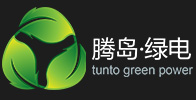direction, future of us solar panel industry in conflict after trump\'s tariffs
by:Tunto
2020-03-21
When President Donald Trump honored a major campaign promise in January to impose tariffs on imported solar panels, no one was happier than SolarWorld CEO Jugan Stein.
\"China is cheating, China is dumping, and China has government subsidies,\" he said . \". “Over 30 (American)
Over the past five years, manufacturers have had to withdraw from the market because of dumping subsidized products in the United States.
The remaining two US manufacturers, SolarWorld Americas and Suniva, both filed for bankruptcy and testified at the Bipartisan International Trade Commission last fall, which unanimously recommended tariffs.
Trump warned other countries when signing executive orders: \"Our company will no longer be used, and our workers will have a lot of great work, their products will be produced in old American products. S. A.
\"The tariff will last four years, starting at 30% in the first year, falling annually until it reaches 15% in the fourth year.
After a ruling by the International Trade Center, SolarWorld began to re-hire workers and increase production, Stein said: \"Our current production capacity is about 50%, and we hope to increase further efforts to get people back to work.
While few deny dumping cheap foreign solar panels on the US market has damaged the country\'s manufacturers, many other departments in the industry are not at all happy with the president\'s actions.
\"I think this is a tax on solar panels,\" said Paul Spencer, CEO of clean energy group . \".
\"It raises the price of solar energy and then increases the electricity price for every American.
\"Spencer is a pioneer in the solar business model, and in any case, people who can\'t or don\'t want to install solar panels in their homes can get solar power.
Companies like the clean energy group build solar panel arrays and allow customers to purchase electricity generated by one or more panels.
\"There are hundreds of people building arrays, engineering arrays, and metals from the local, steel, etc.
Spencer pointed out.
According to the Solar Industry Association, about 250,000 people have jobs across the industry, which said in a statement: \"There are 38,000 jobs in the US solar industry. S.
At the end of 2016, all but 2,000 made things other than batteries and panels.
The association predicted the president\'s \". . .
The decision will actually result in losses of about 23,000 jobs in the United States this year, including many manufacturing jobs, and will result in delays or cancellations of billions of dollars in solar investment.
Al Lewis, business editor at the Houston Chronicle, said: \"protectionism is the one who admits failure . \" The Chronicle reports extensively on the energy industry.
\"When we can\'t compete on a certain product, because the labor force is cheaper elsewhere, we impose tariffs. . .
They were involved in a trade war.
Well, the trade war is not good for anyone.
The European Union, China, South Korea, Taiwan and Singapore have filed complaints with the World Trade Organization.
Chad Bowen, an international trade expert at the Peterson Institute for International Economics, said the WTO case could be delayed for several years and is unlikely to have any direct impact on tariffs.
However, he warned that trading partners could find other ways to retaliate, such as China\'s announcement of an investigation into alleged dumping of American sorghum in the Chinese market.
\"It will hurt Americans in a completely different industry: farmers who have nothing to do with the production of solar panels, and the rise in the price of solar panels is simply not good.
\"Three Canadian solar panel manufacturers have also filed a lawsuit against the Trump administration, claiming that tariffs violated the North American Free Trade Agreement.
On the other hand, Jinko solar, China\'s largest solar panel maker, announced that it now plans to build a factory in Jacksonville, Florida for the first time.
\"China is cheating, China is dumping, and China has government subsidies,\" he said . \". “Over 30 (American)
Over the past five years, manufacturers have had to withdraw from the market because of dumping subsidized products in the United States.
The remaining two US manufacturers, SolarWorld Americas and Suniva, both filed for bankruptcy and testified at the Bipartisan International Trade Commission last fall, which unanimously recommended tariffs.
Trump warned other countries when signing executive orders: \"Our company will no longer be used, and our workers will have a lot of great work, their products will be produced in old American products. S. A.
\"The tariff will last four years, starting at 30% in the first year, falling annually until it reaches 15% in the fourth year.
After a ruling by the International Trade Center, SolarWorld began to re-hire workers and increase production, Stein said: \"Our current production capacity is about 50%, and we hope to increase further efforts to get people back to work.
While few deny dumping cheap foreign solar panels on the US market has damaged the country\'s manufacturers, many other departments in the industry are not at all happy with the president\'s actions.
\"I think this is a tax on solar panels,\" said Paul Spencer, CEO of clean energy group . \".
\"It raises the price of solar energy and then increases the electricity price for every American.
\"Spencer is a pioneer in the solar business model, and in any case, people who can\'t or don\'t want to install solar panels in their homes can get solar power.
Companies like the clean energy group build solar panel arrays and allow customers to purchase electricity generated by one or more panels.
\"There are hundreds of people building arrays, engineering arrays, and metals from the local, steel, etc.
Spencer pointed out.
According to the Solar Industry Association, about 250,000 people have jobs across the industry, which said in a statement: \"There are 38,000 jobs in the US solar industry. S.
At the end of 2016, all but 2,000 made things other than batteries and panels.
The association predicted the president\'s \". . .
The decision will actually result in losses of about 23,000 jobs in the United States this year, including many manufacturing jobs, and will result in delays or cancellations of billions of dollars in solar investment.
Al Lewis, business editor at the Houston Chronicle, said: \"protectionism is the one who admits failure . \" The Chronicle reports extensively on the energy industry.
\"When we can\'t compete on a certain product, because the labor force is cheaper elsewhere, we impose tariffs. . .
They were involved in a trade war.
Well, the trade war is not good for anyone.
The European Union, China, South Korea, Taiwan and Singapore have filed complaints with the World Trade Organization.
Chad Bowen, an international trade expert at the Peterson Institute for International Economics, said the WTO case could be delayed for several years and is unlikely to have any direct impact on tariffs.
However, he warned that trading partners could find other ways to retaliate, such as China\'s announcement of an investigation into alleged dumping of American sorghum in the Chinese market.
\"It will hurt Americans in a completely different industry: farmers who have nothing to do with the production of solar panels, and the rise in the price of solar panels is simply not good.
\"Three Canadian solar panel manufacturers have also filed a lawsuit against the Trump administration, claiming that tariffs violated the North American Free Trade Agreement.
On the other hand, Jinko solar, China\'s largest solar panel maker, announced that it now plans to build a factory in Jacksonville, Florida for the first time.
Custom message
 miko@tunto.cn
miko@tunto.cn

































